Body image approval feels like an overwhelming destination for performers who have encountered years of struggle against their bodies. I’ll start with my story; it’s not pretty, but I understand the pressure on performers and what that can do to your mind and behavior. Here is help for coping with body image issues as performers.
Disclaimer: This is a sensitive topic for many. Proceed with caution if eating disorders, distorted eating, and body image conversations are triggering areas for you. I hope sharing my story will help you on your health journey. My Story and recommendations are not a replacement for seeking help from a medical or health professional.
Why is body image such a struggle for performers?
Performers at all levels struggle with poor body image. For some performers, it’s aging; for others, it’s their appearance, hair, build, and, for many, their weight. Research reveals that over 75% of dancers feel pressure to lose weight, with tension often stemming from tight-fitting uniforms (like leotards), comparing ourselves in the studio mirror and costumes. It’s not just dancers; many performers (actors, triple threats, circus artists, etc.) struggle with being happy with their current bodies.
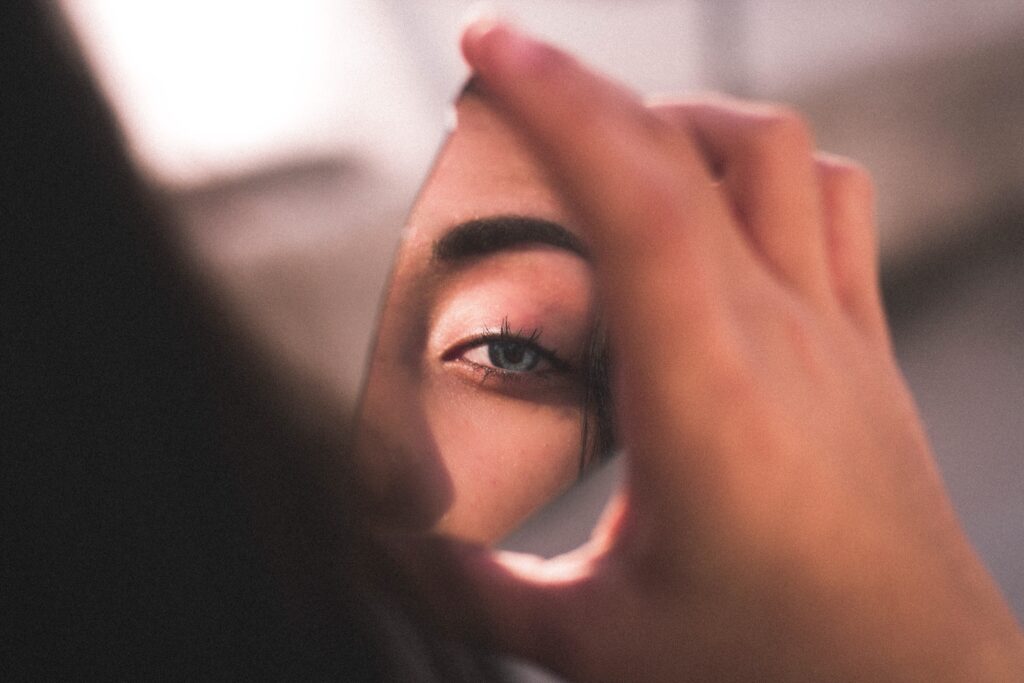
There is a firm belief that lower body weights offer a performance advantage and that casting and audiences will favor or choose the thinner person. Body image issues for performers can cause a focus on others’ approval. Recovery might feel like an overwhelming destination for artists who have encountered years of struggle against their bodies.
Performers must seek support from those with lived experience and medical professionals. Those who have overcome disordered eating, eating disorders, or body image struggles are who I’ve looked to for support in my health journey. Then, I’ve layered in help from certified nutritionists and functional medicine coaches, like my blog post and episode here.
My Story of coping with body image issues as a performer
At 13 years old, I was enrolled in a school’s specialist dance program that included academic and dance studies. I spent every day in front of the mirror in a leotard and tights with a room full of other dancers doing the same. It was hard not to compare my appearance with others; my day was filled with wanting to reduce my size to be smaller. I wasn’t overweight; however, my body changed from a little girl’s to a woman’s frame (puberty). At that time, I didn’t realize that my build was not petite but medium-framed. I was also very tall, and no matter what I did, I could not change my bone structure. At 13 years old, I didn’t see this logic. I just saw ‘bigger’ than the dancer next to me.
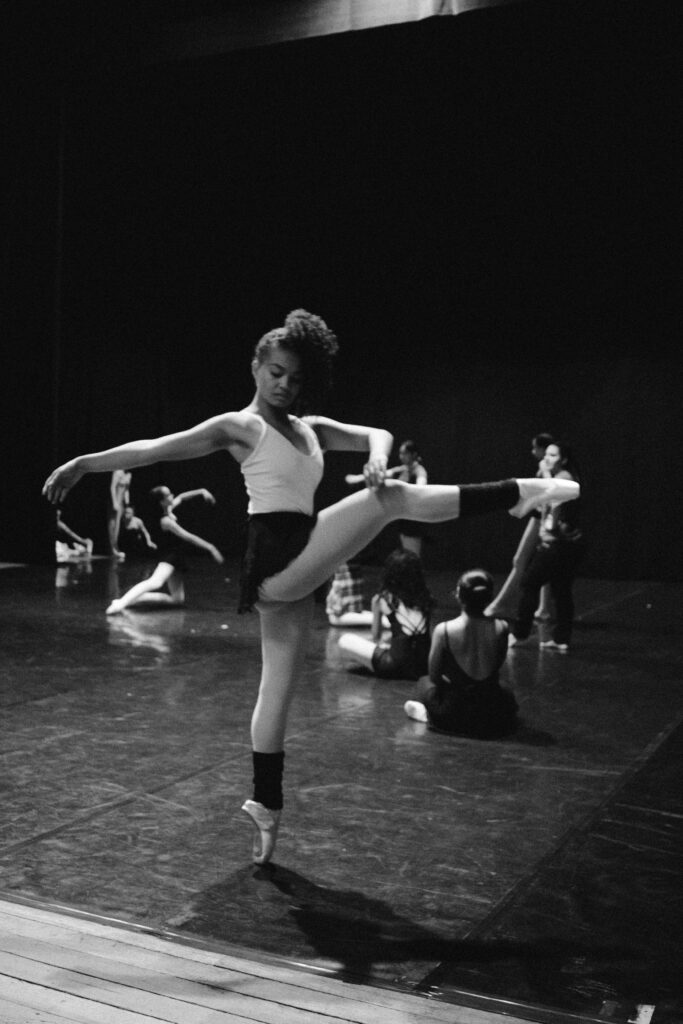
One day, I overheard the dancers in the program two years above me discussing their weight control methods. One of them was already a magazine cover girl, beautiful and influential. This dancer/model shared how you can eat whatever you want and throw it up. The conversation was boastful and sounded to my 13-year-old ears like a great idea! I had never heard of such a thing! Long Story short, I tried it. That began my battle with bulimia. This triggered years of disordered eating, eating disorders, and an unhealthy relationship with what I ate, my food. I later discovered that throwing up my food was NOT a good idea, and it was self-destructive and harmful.
The Effect Of Restrictive Dieting On My Body Image
As a dancer, I did not have the information I needed to know what to eat and when to eat. I silently did the best I learned how to control my weight. This meant not eating until after dance class because my undernourished frame looked thinner (in my 13-year-old opinion). If my dance class were at 1:00 p.m. that day, I would starve myself until then, so I would look slimmer in the mirror. Naturally, when you restrict food intake like this and do intense exercise, you usually feel hungry soon afterward. I would then feel so hungry I’d binge eat, entirely out of control, in a trance-like state. Survival mode is real! Then, I would feel horrible and purge the food to avoid gaining weight. This caused years of disordered eating, strict dieting, and weight fluctuations.
The mirror in the dance studio was not my friend. To make matters worse, teenage boys were very verbal about what they thought about the girls’ bodies around them, talk that should never have been allowed to occur.
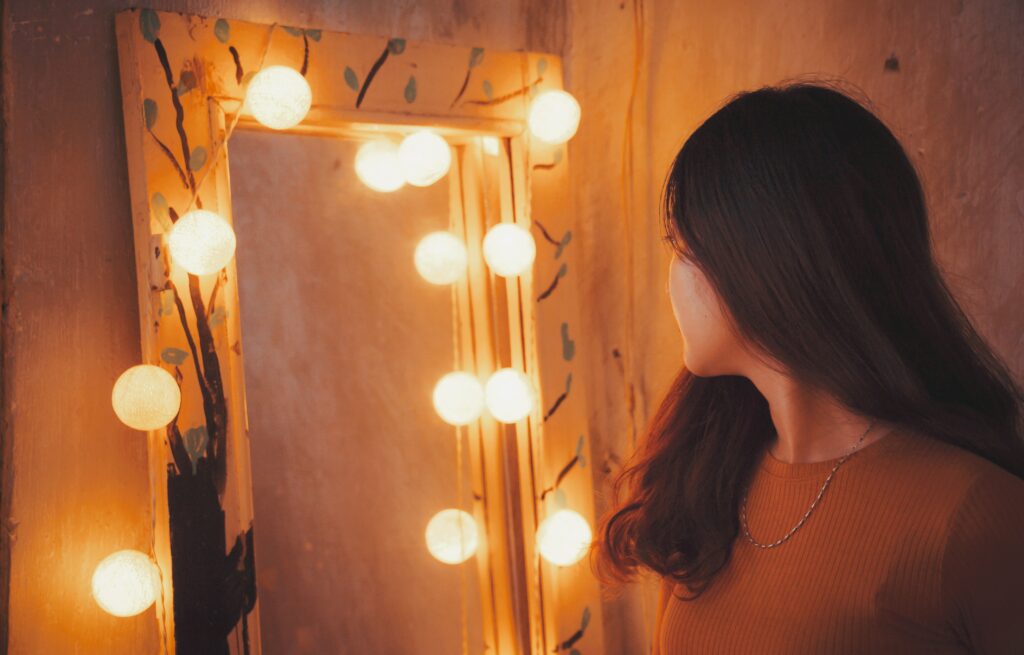
One boy said I want Lara’s (that’s me) face with that girl’s body (my best friend at the time); Those words ran deep into my self-image for decades after that day. The profound question hidden inside was why my body wasn’t enough for his approval as it was. I believed it must be because I was overweight. In hindsight, I realized it was because my friend was busty and always wore tight tops; I did not. Yet I didn’t see that at the time. Part of how to cope with body image issues as Artists or Performers often involves healing from negative words spoken about or to us.
The many things I have tried and why they don’t work
Diets were all over magazine articles at this time in my life. Stick-thin was worshipped as the ideal. This period trophied the petite frame; anything outside was seen as a failure. My peers praised dancers for being skinny; other dancers looked up to them for their thin physiques. Not eating much was also admired. It was a messed up system. Today, the world is improving. However, this issue is still a reality for many performers.
I now realize that restricting food intake put my body into starvation mode. My overwhelming impulse to eat after starving myself was survival mode, and my lower brain sent loud signals to me to eat and eat a lot. This became the yo-yo journey of dying, bingeing, purging, restricting, and repeating. Often, restrictive diets have this effect or similar and can result in weight gain in the long run as our body fights our unbalanced behavior.
Overcoming poor body image issues and destructive thoughts and behavior
Overcoming this unhealthy pattern has taken me decades. My healing response to this way of eating was to eat adequately, notice and dismiss urges to overeat and purge. What works is a healthy eating plan. When my body is filled with healthy, balanced nutrition, not starving or overstuffed, it doesn’t send overwhelming binge or purge messages. Period. As a performer, coping with body image issues was not as hard after I ate adequately and dismissed urges.
I would have never had weight issues if I hadn’t been dieting. Dieting and restriction caused my weight issues. I now focus on a healthy, balanced eating plan, and I don’t diet. Our bodies will restore to the correct weight for ourselves when we eat regularly in a healthy, nutritionally balanced way. I know people are doing other things that work for them, but this is what I know works for me. If you are struggling with disordered eating, the books that helped me and that I recommend as part of your recovery journey are listed here.
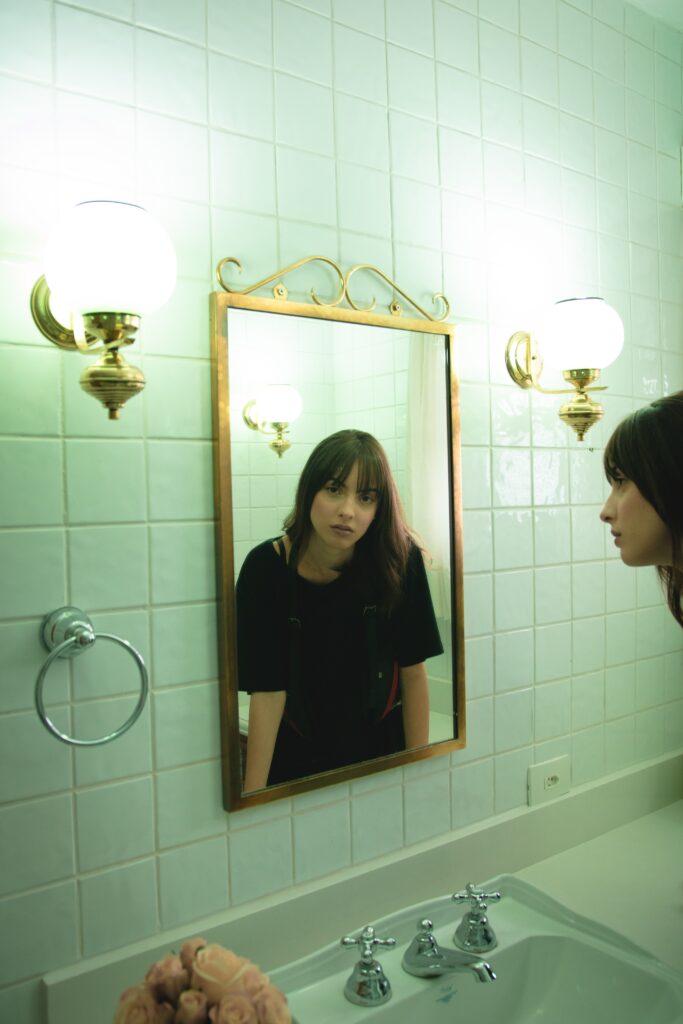
After I healed the behavior patterns that were not serving me, I focused on my mind, self-talk, and thoughts. I saw a psychologist for issues holding me back. I had a mantra when entering a class: The mirror is not who I am, that I am fearfully and wonderfully made, and that this class would be therapeutic and not destructive. It took a long time to transform, but it’s worth the work and journey.
We have our health and a body to live and move in. That can become something we are grateful for each day. I realized that abusing my body like it was an enemy was counterintuitive to the gift of expressing myself creatively as an artist and the gift of life and health. The problem was not me; it was a toxic and broken industry and culture that promoted beauty as only 1 type of ‘look.’
We can develop a healthy body image if we don’t have it.
Although the world is improving and becoming more diverse in its industry representation of beauty and body image, I have had many statements spoken to me in musical theater rehearsals in the last decade. Comments like, “What are you going to do about your weight? You’re too skinny for the fat roles and too fat for the skinny roles.” It cut… if only she knew how hard I was trying not to be thin and how my eating disorder felt impossible to control at that time. This highly renowned teacher was of a generation where this was considered okay; it’s not anymore. Don’t tolerate it, friends.
Be careful about what you let into your mind.
I saw a post on social media by someone who said, “Until you can learn to control yourself around food, you’ll have weight issues.” Although this is true, it is a shaming way of thinking. People with body image issues and disordered eating usually want more than anything to be well. It takes a lot of help, work, and healing destructive thinking.
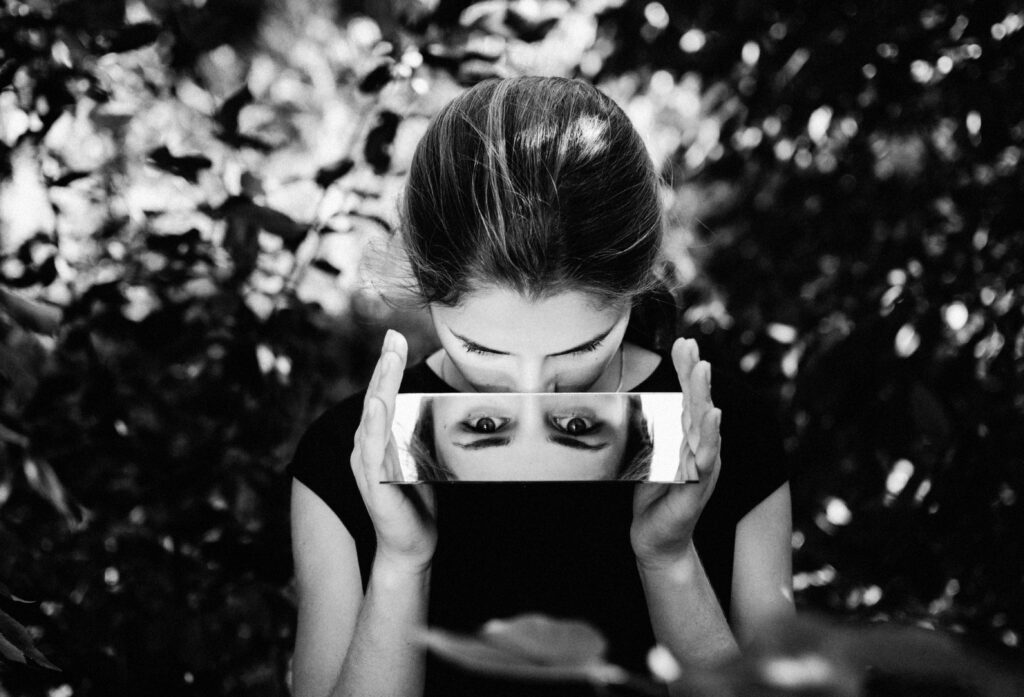
I’m married to a man who has never had body image or weight issues, eats what he likes, and has a great relationship with food. Everyone wants that, but not everyone has that setup in life.
The performer’s preoccupation with being slim can create an unhealthy relationship with food, resulting in maladaptive eating patterns. Performers with body dysmorphia and eating disorders usually have a propensity, like genetics, personality types, mental/environmental conditioning, or other elements.
The good news is that we can develop healthy eating patterns and body image if not handed it in life. The brain is plastic, not fixed, meaning our brain can change its structure and connections in response to stimuli such as food and how we look. Let us empower people to have total health and not shame them. That’s why help from people with lived experience can be beneficial.
Casting is challenging when it comes to our ‘type.’
The industry is changing; more body types are being accepted on TV and on stage. However, there is still pressure to fit ‘types’ in many circles, which can be challenging for a performer. We can have a healthy eating plan, work out, and train to be our best, but if we don’t fit a casting type, we need to breathe deeply and tell ourselves… ‘it’s okay; it wasn’t for me, but something else will be.’ Breathe in self-acceptance and say goodbye to the inner mean person voice that doesn’t serve you as a performer. Our identity should not be built on an industry opinion or a social media following that is shifting sand.
You are worthy my friend because there is life in you and breath in you, you are a human being, your identity is not a ‘type.’
Lara Bianca Pilcher
Celebrities are speaking out about coping with body image issues as performers.
Body Image and Aging by Model Paulina Porizkova
The 57-year-old supermodel spoke about aging in a 2022 interview with People, saying it’s a movement that calls for more exposure.
“I felt ashamed to be aging, and then on the other hand you go, ‘But, I’m smarter, I’m better, I’m funnier, I’m more patient! Overall as a person, I’m the best I’ve ever been. So I’m not ready to be dismissed. You don’t get to dismiss me because I have some wrinkles and sags and gray hair now, when I’m kind of fabulous, the most fabulous I’ve ever been, In fact, I’m going to just put it out there and go, You know what, this is me at my best. Deal with it!”
Paulina Porizkova
Body Image and an Acting Role by Zac Effron
After Zac Effron played a lead in Baywatch (2017), fans associated Efron with his chiseled physique. He wants people who want that body type to know he ruined his health, working towards this physical look as a goal. Many of his following wasted no moment speaking out when he later turned to more of a “dad bod” appearance. In an interview with Men’s Health, Efron revealed that he never desires to resort to the processes it took to acquire that lifeguard body again and said nobody should.
He needed the look for the role, but for him, it came at the expense of using diuretics, poor sleep overtraining, and the same three meals daily.
“I started to develop insomnia, and I fell into a bad depression for a long time. It took six months after filming to feel normal again.”
Zac Effron
Zac also shared with Men’s Health Magazine that he is now looking for more profound transformations in his career, not just physical transformations.
Thanks for those empowering words, Zac!
Resources I recommend to help you on your journey to wholeness with body image
The body-positivity movement is officially mainstream. The first step towards healing is acknowledging that there is a problem and seeking help. I have done this; feel free to book a session with me here to find out how. Also, the books I’ve read and recommend for progress are on my Amazon store here.
Coping with body image issues as performers
Performers are often at increased risk for acquiring body image issues and eating disorders due to the perfectionism and drive we need to flourish in showbiz and the cruelty of opinions that flood social media about how we look on TV, film, or stage. Food and other destructive behaviors can be a means of self-soothing and numbing difficult emotions or a misused place of control when we often feel out of control in our careers.
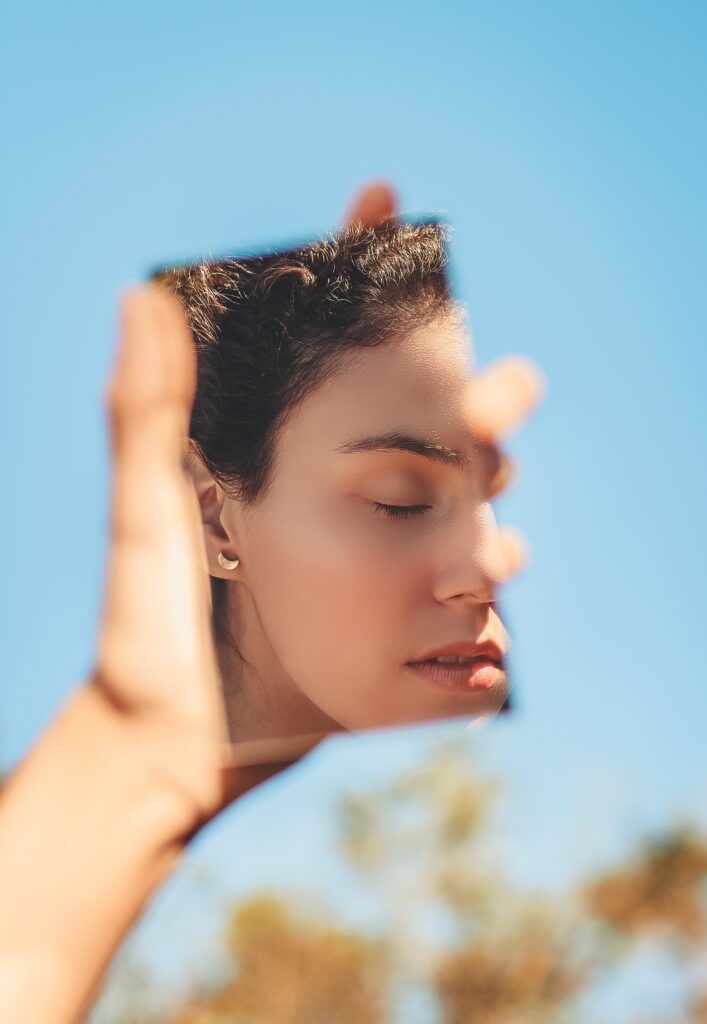
There is a way forward if you’ve toiled with poor body image. If you struggle with an eating disorder or are inclined toward one, it’s worth observing how you relate to nutrition and food. Warning signs include eating in secret because you feel ashamed of what you’re eating, how much, or eating at all, trying to numb yourself with food (which can feel like an out-of-control trance for some), overly thinking about what you can and can’t eat and being very inflexible with what you permit yourself to eat and when.
If you detect any of these behaviors arising, pursue support. If finances are an issue, I recommend seeking online support groups with lived experience. You can also look at support books I’ve used to help me recover here. Listen to the free advice podcast episode and blog article with a registered nutritionist and health coach here. See a dietitian, therapist, or physician specializing in eating disorders. Please don’t do it alone; it can take much longer to reach wellness without help.
You can find the resource books I recommend in this episode here
With you on the journey, friend.
LBP X
Build a life of love, purpose, adventure, and boundless creativity.
Take the first steps toward this inspiring journey now.
Book personalized Life Coaching with Lara here.
Purchase The Creative Purpose Journal here.
Learn more about Lara here
Find me on Instagram here


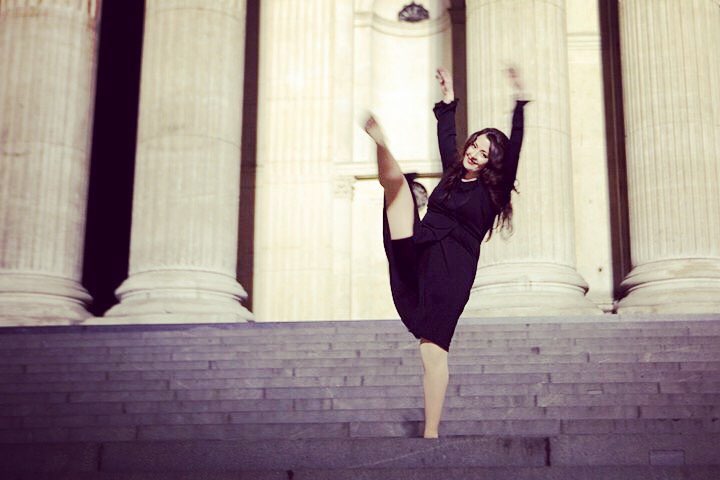

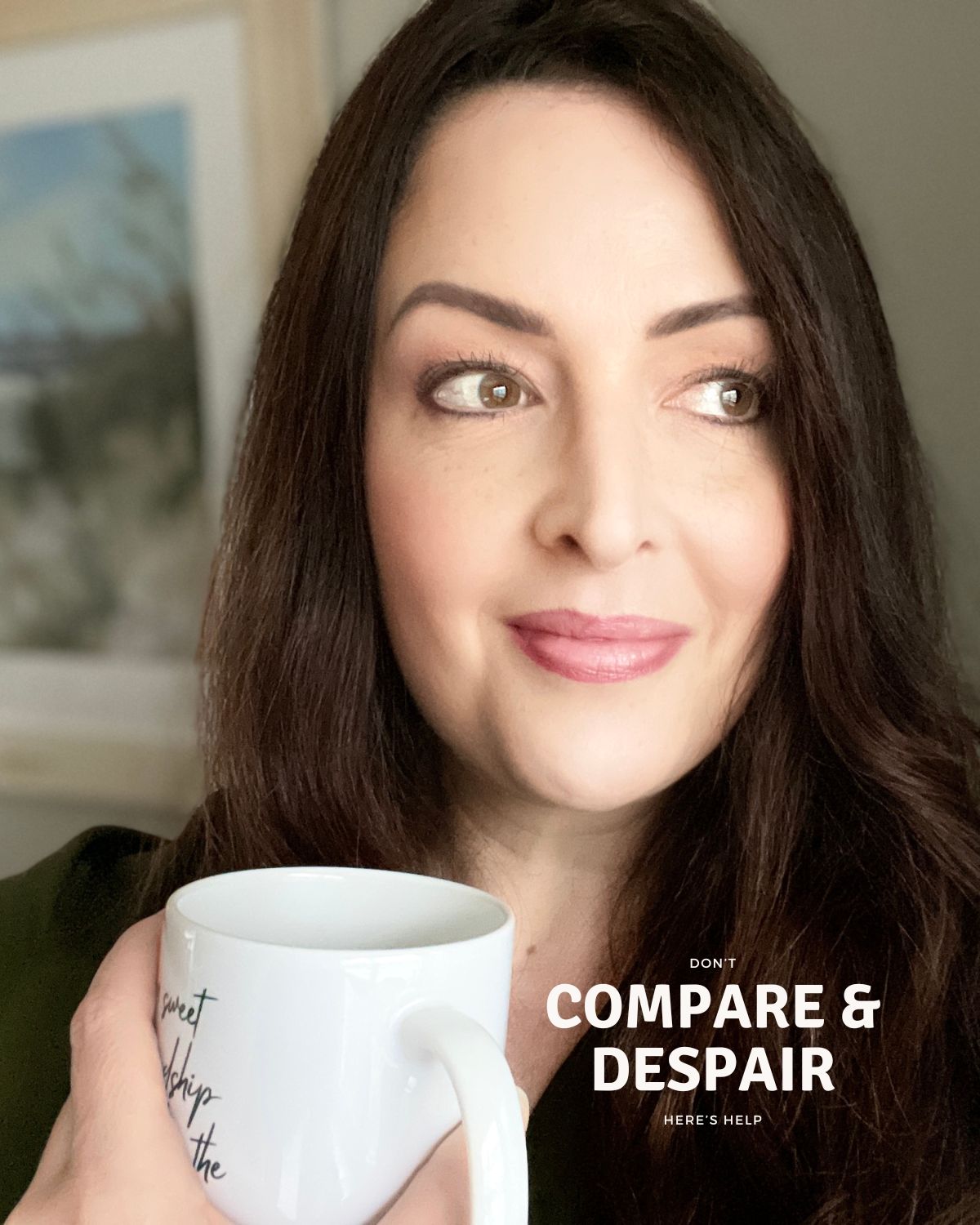
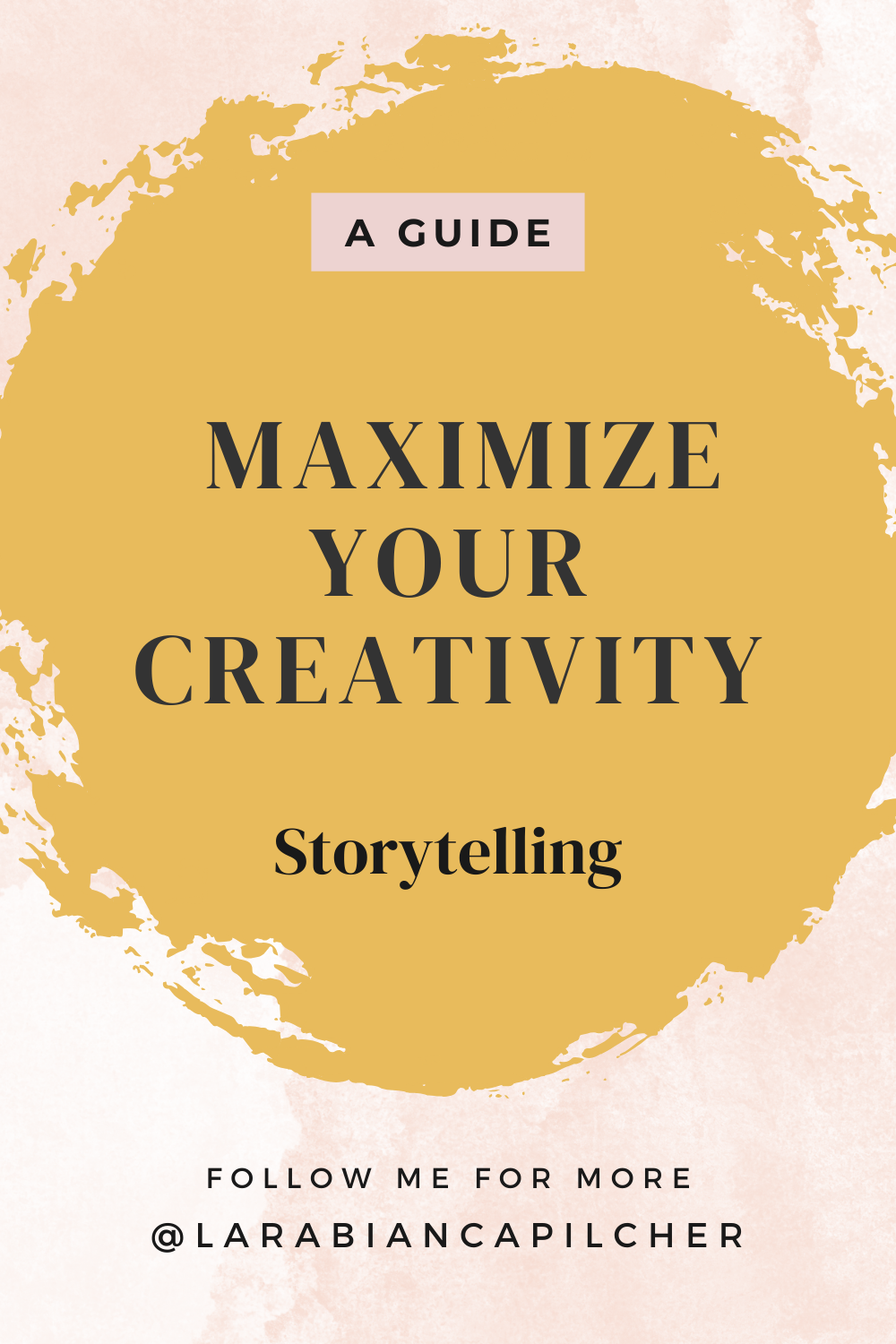
Build a life of love, purpose, adventure & boundless creativity!